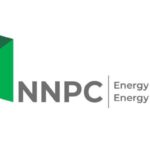When oil and gas production started at the Erhoika flow station, Kokori/Orogun bloc, Delta State in 1963, just three years after the nation’s independence, the villagers, chiefly subsistence farmers, who were living in obscurity jumped with joy at the amazing gas flare which illuminated their community every night. (Vanguard Online, 6 April, 2018).
Several decades after, the dwellers recount their euphoria as hope misplaced as they grow to realise that the light was gas flare with damaging impact on their immediate environment.
I was fascinated when I read the article “Pain, tears of oil exploitation: Gas flare, acid rain still haunt Niger Delta”. I might not have been to Kokori, Orogun and the other communities that were mentioned by Emma Amaize and Chioma Onuegbu in that article, but I have had a feel of what the experience is like with the black soot rain in Port Harcourt, Rivers State. The contaminated air is just a tip of the iceberg compared to the many other issues surrounding hydrocarbon exploitation and processing such as gas flare.
Gas flare and its impact is one of the devastating consequences of oil drilling. It is an environmental pollution that cannot be disassociated with the drilling of oil. Gas flare emission is harmful to human life and the environment, it affects the source of livelihood of the localities as vast portions of the farmlands are polluted. A lot of diseases are caused by gas flare such as asthma, bronchitis, cancer, blood disorders and skin diseases. On a national and global scale, gas flares are significant contributors to global warming due to the extra gas burned during the oil exploitation process.
Nigeria as one of the World Bank Global Gas Flaring Reduction (GGFR) partners is also ensuring that these hazards will soon be a thing of the past. The Federal government is fighting back with an audacious and large gas flare elimination program through the Ministerial Committee on the Nigerian Gas Flare Commercialization Programme. The Committee’s responsibility is not just to reduce or eliminate gas flare but also to harness Nigeria’s flare gas for sustainable value and wealth creation. Now here as some sobering statistics on gas flare in Nigeria.
Nigeria flares up to one billion standard cubic feet of gas per day in a total of 175 flare points.
Nigeria is the 7th Largest gas flaring Nation in the world and
the gas flared in Nigeria on an annual basis can generate more than three thousand Megawatts of power for the country
These statistics were revealed by the Ministerial Committee on the Nigerian Gas Flare Commercialization Programme, at a courtesy visit to the Petroleum Technology Development Fund (PTDF) to present the framework of the Gas Flare Commercialization Programme. Nigeria, according to the committee is one of the largest gas flaring countries with about 745 standard cubic feet of associated gas flared daily which, if harnessed, could provide 450,000 MT of liquefied petroleum gas (LPG) for over 4 million Nigerian household.
The Committee further revealed that in 2015, 1,000 million standard cubic feet of gas was flared in Nigeria and this exceeds the 800 million standard cubic feet of gas that is utilized for power generation and the 450 million standard cubic feet of gas per day utilized in the domestic industry. In 2016, 289 billion cubic feet of gas was flared, contributing 22 tons of carbon dioxide (CO) emissions to the environment, a loss of three thousand megawatts of electricity generation, a loss of 350 million dollars’ emission credit value and 800 million dollars in lost revenue.
Regulations have however been put in place prescribing penalties for gas flaring. It introduced a new payment regime as penalties for gas flaring by adopting the polluter pays principle. The regulations further imposed significant obligations on producers and gas flare out projects for the reporting of data in respect of activities related to gas flaring. It also introduced the payment of two dollars fifty cents for failure to produce accurate flare data, failure to provide access to flare and flare sites, and failure to sign a connection agreement.
The Committee’s visit was not only to present the alarming realities of gas flare but also to look at common areas for possible collaboration specifically on developing the capacity that is required to achieve Governments renewed focus on gas utilization.
Other stakeholders in the industry have also expressed the need for PTDF to start aligning its training to build specific competencies for a smooth transition from a crude oil export-based economy to a gas-based industrial economy in Nigeria.
The Chairman Gas Association of Nigeria, Engineer Dada Thomas, at a Stakeholders Forum on Gas organised by PTDF advised that beyond developing capacity for the upstream segment for exploring and producing gas, PTDF should also train operators in the mid and downstream segments to build pipelines, operate the pipelines properly to the benefit of the many industries that use gas as raw materials, whether fertilizer plant, petrochemical plant or compressed mini natural gas plant.
Mindful of the Federal Government renewed focus on gas, the Petroleum Technology Development Fund has taken the initiative to create a Gas Technology Development Division with a mandate to develop strategies for domestication of gas training to achieve not only the human capital needs of the national gas policy, but also to develop partnerships and collaboration with relevant gas associations, government agencies, private organisations and the academia to facilitate the development of home grown technology in the Nigerian gas value chain.
PTDF has also taken steps to identify the manpower gaps by conducting a Skills Gap Audit aimed at determining the critical human resources required for gas management and operations. The report of the Skills Gap Audit and Survey requires PTDF to provide manpower training in Blow Moulding, Gas Processing, Gas Transmission and Distribution, Corrosion Engineering, Compressed Natural Gas (CNG) Conversion Technology, Cryogenics and Safety, to drive the exploration, production and utilization of gas.
The findings from the Skills Gap Audit conform with the recommendations of Dr. David Ige an industry expert and CEO of Gas Invest Limited. Presenting a general overview of the Gas sector at the PTDF quarterly lecture series, he recommended the development of skills in Gas engineering, skilled experts in cryogenics for the movement of LNG liquid at sub-temperatures, skills in Petrochemical Technology and Safety Skills for Gas operations. He also emphasized the need to develop skills required to manage the commercial aspects of Gas such as in negotiating agreements that will add economic value to Nigeria’s gas resources.
PTDF is also going into partnership with relevant gas associations and agencies that are responsible for linking buyers and sellers in the gas sector. Through these associations PTDF will be able to know the projects that are upcoming, and plan to provide skills for specific projects.
While the Federal Government has made substantial progress in reducing gas flare to stimulate economic growth, drive investment and provide innovative technologies, the programme cannot be effectively and efficiently implemented without quality man power. Well trained manpower resources are required to carry out these processes, and the Petroleum Technology Development Fund (PTDF) is playing a vital role in developing the relevant capacity required to actualise the gas flare elimination programme thereby further unlocking the potentials of gas in Nigeria.
Article is a contribution of the Press and External Relations Unit, Petroleum Technology Development Fund.



